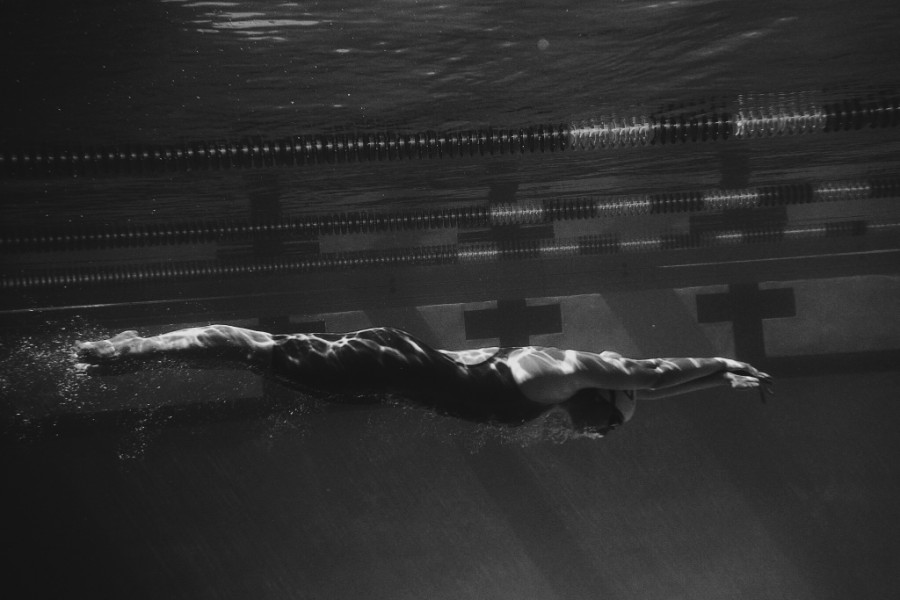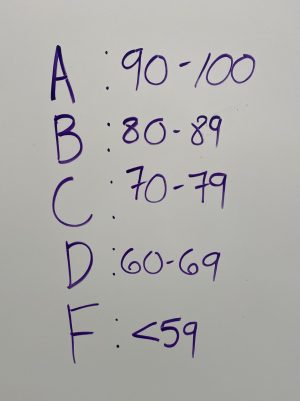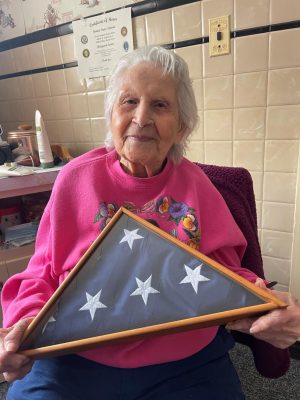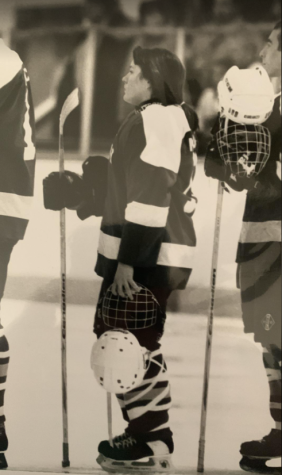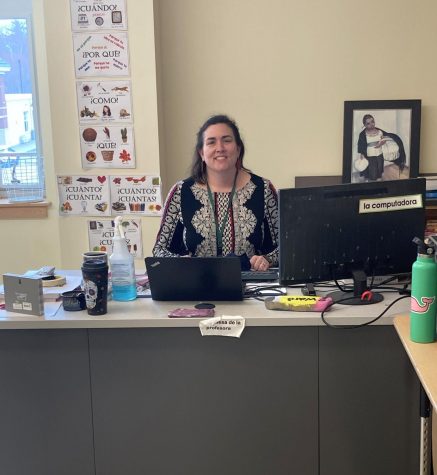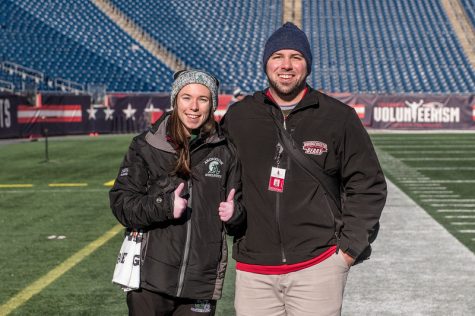Colleen O’Neil: Diving Right In at LSU
AHS Alumna balances swimming, school and southern hospitality
Photo by Danielle Stirrat - used with permission
Colleen O’Neill
October 16, 2015
According to one definition, success is “the accomplishment of an aim or purpose” (Oxford English Dictionary). Colleen O’Neil, my older sister and Abington High School alumna (Class of 2013), fits this definition in many ways. O’Neil is a student athlete at Louisiana State University (LSU), a member of the South Eastern Conference. The SEC is the top swimming conference in the country, and she placed in the top 15 at the SEC, and was ranked top 30 in the country at the NCAA Championships in her respective events: the 100-yard breaststroke and the 200-yard individual medley. Swimming is her passion, and it is what has led her to be so successful in life thus far. “LSU offers me a good balance between academics and SEC athletics,” said O’Neil. Many aspire to be able to pursue this kind of school and lifestyle, and although it is extremely challenging, O’Neil and many others who are student athletes throughout their college careers reap the rewards.
 (Photo Courtesy Colleen O’Neil)
(Photo Courtesy Colleen O’Neil)
The challenging lifestyle of a college student athlete, or a student athlete at any level, is something only those who live it can empathize with. O’Neil took this writer through a typical day in her life. “I wake up at about 5 a.m. for weights and swimming practice from 5:45 to 8 a.m. From about 8:30 a.m. to 1 p.m. I have classes. Then at 1:45 p.m., I have swimming again until 4 p.m. Finally, I have a class or two at night between 4:30 and 6 p.m.” This does not seem like a schedule the average person could bear to live with, though O’Neil said that having roommates that are also swimmers or divers helps her balance this unique agenda because they have the same schedule as she does. “Scheduling homework and study time is easier with them surrounding me. We all make sure that we have enough sleep to perform each day.” O’Neil also believes that the difficulty of balancing Division I athletics and academics is not fully understood. “Those who do not participate in an athletic activity do not understand that it requires really big time management throughout the day. Also, being able to deal with, often times, the lack of sleep and physical fatigue in our classes makes it extremely hard to do well and focus on academics. Eating the right foods is also necessary for student athletes, and there are many social sacrifices that are required for us to do well.” The social and family lives of a student athlete are much more difficult to maintain then the lives of those who do not participate in a sport. O’Neil said, “I only get to see my family six weeks out of the whole year because of how expensive flights are and my training schedule at LSU.” O’Neil’s transition to the move half way across the country was made easier because of the team atmosphere at LSU. “As a freshman, I walked in and had an immediate group of 50 plus friends. My athletic advisers, trainers and coaches helped me ease into living by myself in the south.” All of these aspects in O’Neil’s life are trying, but the lifestyle is also very fulfilling.
My athletic advisers, trainers and coaches helped me ease into living by myself in the south.
— Colleen O'Neil
O’Neil would describe her life at LSU to be “exciting, rewarding and unique.” A benefit of being a part of the LSU Swimming and Diving team is that “LSU has many kinds of assistance at your fingertips such as free tutors, nutritionists, sports psychologists, trainers and coaches. They help with whatever you need. Otherwise, few top 25 schools in the country have the same coaching staff for both males and females in the program. This helps a lot in practice and meets, to help us succeed.” This is a unique aspect of LSU. O’Neil said that the best part of being a Division I athlete is “the opportunity to compete against the best athletes in the country in my sport.” And, as a nice side benefit at LSU, “all swimmers receive front row football tickets to the home games without charge.” College athletes receive extreme amounts of glory, and their hard work in high school does pay off. O’Neil suggests that high school student athletes “learn how to balance athletics and academics now. College gets much harder in both school and your sport, so learn as quickly as you can.” Working hard in all aspects of one’s life can be challenging, but in the end it is rewarding.

